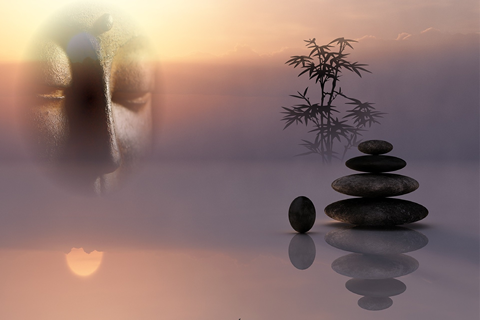Practicing Compassionate Medicine

Traditional Chinese Medicine
(TCM) while relatively new in the United States, is a 3,000-year-old system of treatment. This highly developed and effective medical system has been proven over time; today one fourth of the world's population receives medical treatmentfrom TCM practitioners. Although acupuncture is the most familiar modality within TCM, the practice of Chinese herbology, various forms of massage therapy, and diet/lifestyle counseling are equally important to maintaining health.
Are you looking for:
- • A more personalized approach to healthcare?
- • Treatment of the whole person; body, mind and spirit?
- • Treatment as equally focused on preventitive healthcare as curative?
- • Treatments that have minimal or no side effects?
Treatment of the whole person; body, mind and spirit
Why TCM?
Every person on this planet is uniquely different. Each disease pattern will be manifested just as differently. The outside sign or symptom may be the same, but the root cause most likely is not. In TCM multiple groups of complaints can be categorized and dealt with on an individual basis returning healthcare back to a personalized event.
Utilizing concepts such as Yin and Yang, the Five Elements, and the Three Treasures, TCM is superior in its innate perception of the body’s needs and requirements. TCM is able to recognize the internal problem by the outer manifestations and categorize it into logical causes by following the five elemental, eight parameter and pulse and tongue diagnostic methods. A headache, for example, is broken down into a subcategory looking at its nature, timing, location and intensity. It can come from a weakened digestion or a non-regulating [stagnation in the] liver. Both would be treated completely different.
Benefits of TCM
TCM is based on prevention as much as it is highly effective on long-term, chronic patterns that afflict so many individuals. TCM has the ability to promote and maintain a standard of health which comes from a persons own ability to regulate and ward-off disease factors. Each of us is a microcosmic unit of elements, emotions and spirit. By helping a person to harmonize these three aspects good health is attained.
TCM and Prevention
The area of disease prevention is becoming a more accepted and viable way of thought. Even with the most open minded person, prevention is still a hard concept to comprehend. The question is why some people become ill and not others. For many of us the deeper question is “what can I do?” For thousands of years the great Chinese physicians believed in taking measures to ward off disease by keeping a patient’s organ system harmonized.
TCM states that if all of the five organ networks are working harmoniously disease will not be able to penetrate.
The ancient beliefs on which TCM is based include the following:
- • The human body is a miniature version of the larger, surrounding universe.
- • Harmony between two opposing yet complementary forces, called yin and yang, supports health, and disease results from an imbalance between these forces.
- • Five elements—fire, earth, wood, metal, and water—symbolically represent all phenomena, including the stages of human life, and explain the functioning of the body and how it changes during disease.
- • Qi, a vital energy that flows through the body, performs multiple functions in maintaining health.
In a famous dialogue between Huang Di (the Yellow Emporer) and his physician Qi Bo, they discuss the whole spectrum of Chinese Medical Arts. This dialogue is the basis for a monumental text called the Nei Jing (The Yellow Emperor’s Classic of Internal Medicine). The Nei Jing is the earliest book written on Chinese Medicine and was compiled around 305-204 B.C.
What to expect during your first visit.
